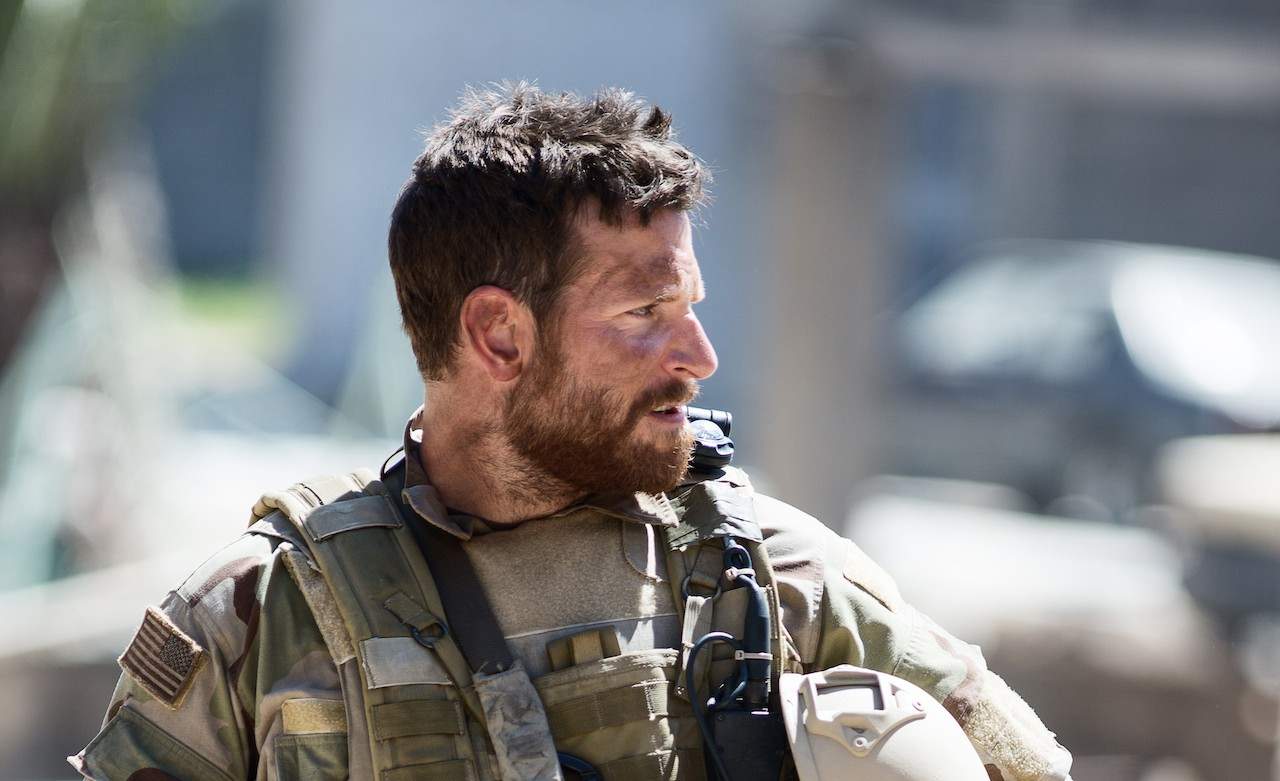American Sniper
The Oscar Best Picture nominee that's proven a step too warmongery for some.
Overview
When a film bears the name American Sniper – and the memoir it adapts includes The Autobiography of the Most Lethal Sniper in US Military History in its title – certain things are unsurprising. To judge a movie by its moniker and a book by its cover, patriotism is expected, as are ample scenes seen through the crosshairs of a riflescope. Clint Eastwood’s latest feature delivers both.
The true tale inspiring jingoistic fervour is that of Chris Kyle (Bradley Cooper), a Texan rodeo cowboy turned Navy SEAL. In four tours of Iraq post-9/11, he was credited with 160 confirmed kills. His fellow soldiers anointed him with the nickname 'Legend', continually proffering their thanks and idolatry. With each deployment, the worries of his wife, Taya (Sienna Miller), grew, as did the distance in their marriage.
As the man who played Dirty Harry, Eastwood is no stranger to portrayals of men steeped in violence, or to positioning their deeds as those of necessity. Symbolism torn from many a western and war movie included, he takes to the story with passion and without subtlety. With his protagonist pledging allegiance to “God, country and family”, in that order, he paints Kyle as a hero, and shapes the feature as a tribute.
Treading the fine line between condoning certain actions and representing reality is a tricky task, and one Eastwood’s feature does show signs of struggling with. Only slivers are glimpsed of a more complex and conflicted train of thought than the feature’s primary narrative.
Shadows of martial discontent flicker over supporting characters, but the enemy is not within, in American Sniper's case, as an insurgent enemy sniper threatens the unit. It's a dramatic tension that's technically well-executed but thematically questionable. Similarly, Kyle’s difficulties on the home front are tinged with the weight his work bears on his conscience, explained as regret over the lives he couldn’t save, rather than any troubles with what he did and saw.
And then there's the Iraqi problem. Whenever the viewpoint of the other side threatens to interject, such as with the plight of a local family forced to inform against a villain, empathy is absent. American Sniper presents one perspective only, so the occupied people of Iraq remain strangers. While Eastwood’s Flags of Our Fathers did the same, here there’s no Letters from Iwo Jima to offer balance.
Performance-wise, the duty-bound feature isn’t helped by Cooper’s lead turn, even if an Academy Award nomination seems to indicate otherwise. He looks the part, complete with a hulking swagger and an aversion to his usual charm, but his rendering of Kyle is as one-note as the bulk of the storyline. Similarly, Miller plays the stereotypical neglected wife in a paint-by-numbers performance.
Of course, countless films – war and otherwise – spin one-sided yarns of good-versus-evil and even do so well; however, American Sniper is never anything less than uneasy. The sand-swept action that clouds the frame, the unwavering conviction and the sentiment of the ending are predictably blatant and sometimes brutal – and so is the accompanying discomfort.





